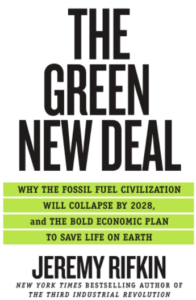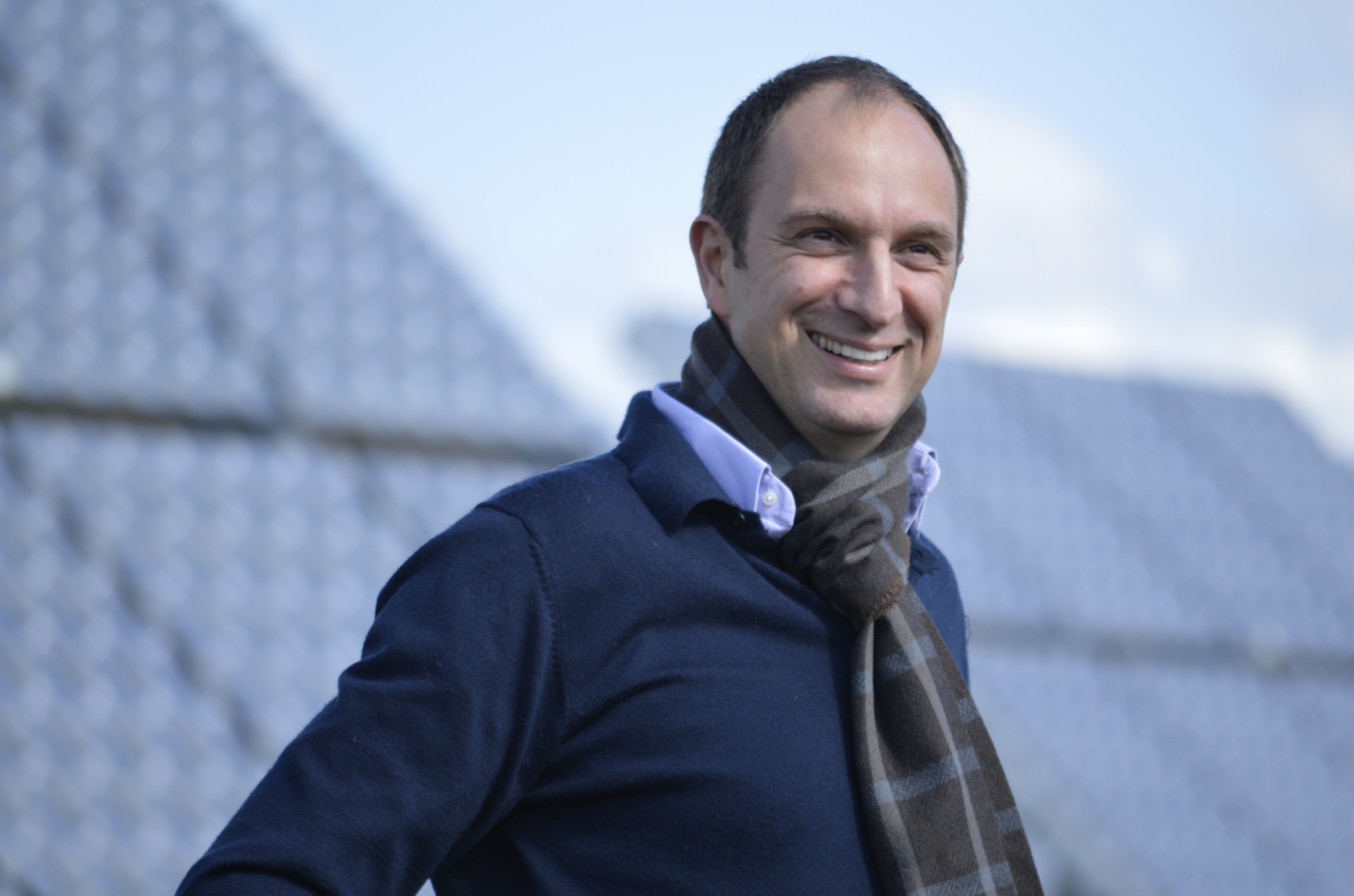Marc Rechter
“Aiming to add value in the emerging decentralised and decarbonised energy sector“
Innovation Community Platform: https://platform.knowco.net
What is your Story as an Entrepreneur? How was your moment when you decided to create your own company?
It started in 2004 when I decided to leave my corporate career behind. I started my own company with my partner. The initial activity was launched in the real estate sector, as advisors and developers of real estate projects in Central and Eastern Europe. This was a very successful project in terms of the large quantity of projects and partners developed. However, we were faced with the October 2008 financial crisis, causing the global economy to collapse. Of course, this had a big impact on the ability to finance projects. Given that the global financial crisis drained the liquidity available in Ukraine, there was no longer any capital to finance to continue activity.
Since then, my partner and I continued to be entrepreneurs, and as things change, adaptation is necessary. We closed down activities in Ukraine after 5 years in real estate development, and conducted a ‘helicopter analysis’ of the world to determine which opportunities were out there. From the analysis, we determined to explore the renewable energy sector. We felt that the renewable energy sector was going to see a major growth in the decades to come. We also felt that we would be adding significant value with our joint entrepreneurial expertise and our own individual experiences, creating a decarbonised energy system.
What is your company about? How did you come with the idea?
It was a matter of analysing a specific market with a future. The analysis included determining where our passions lied and determining what we felt strongly about. All of those factors combined together to form a concept and a plan which was to add value in the emerging decentralised and decarbonised energy sector. At that time (2009-2010), this sector did not exist. We felt that solar technology would become the most attractive clean energy.
So in 2010, things were not clear and the solar energy sector was an area with great uncertainty. Nevertheless, we set out to create a concept called Algarve Energy Park in Southern Portugal. This project envisioned the implementation of solar energy along with other renewables such as electric vehicles and batteries and other renewable energy technologies.
This project was presented to government, industry, companies and research institutions which was very well received. There was a strong interest to participate in the concept to turn it into a project. Unlucky for use, in March 2011 the second wave of financial and economic crisis in Portugal, Greece, Italy and Spain. So that caused a second external shock that halted our project, placing us in a difficult situation. Uncertainty meant investors were not investing and banks were closed.
In spite of that, we adapted to the crises and continued forward. Adapting to circumstances for us meant implementing one component of the Algarve Energy Park platform which resulted in the Solar Demo Platform.
In 2013 the financial markets started slowly recuperating allowing us to build the Solar Demo Platform. We never sat still and learned a lot about technology, integration, policies, impact of Brussels and the EU on Member State energy legislation. That is how we became active in the EU energy transition from a regulatory perspective. By October 2015, the Solar Demo Platform finished construction and we got our first clients! This was our first infrastructure project.
As you can see, things take quite a bit of time and patience to overcome economic and financial crises’. That patience and research in the energy market led to regulatory involvement at the EU level and participation in Horizon 2020 Innovation projects in 2015-2016.
Lots of innovation and digital related projects emerged. In 2017, we recognised that solar became so cheap and we were now able to get electricity without the need to subsidise solar technology. This gave rise to the opportunity of green hydrogen. Through the use of an electrolysis system (taking water and electricity from green sources) producing hydrogen was possible to create totally clean energy without any pollution. Hydrogen is used in very big industries such as pharmaceuticals, steel and cement production. By using solar and electrolysis we could start replacing grey hydrogen with green hydrogen.
Our project has mobilised most of southern europe’s oil and gas companies around the Green Flamingo hydrogen project, becoming the biggest and most advanced/mature project in the clean hydrogen sector, placing us at the forefront of a new industry.
With the coronavirus, the EU commission and Member States has accelerated the push for the green deal of which hydrogen is an essential part.
What is your purpose behind the company? What is your business model and impact model?
Impact of Enercoutim is that we have mobilised the green hydrogen market in Southern Europe as previously there was no prior interest in green energy by governments and companies. Now, through our efforts, the Portuguese government has made it a national strategic priority and made a lot of money available to implement green hydrogen. The Portuguese government is also assisting by developing legislation on the market.
What is your PR and Marketing strategy? What kind of services your company is providing for your customers?
Enercoutim has three major areas of activity. Firstly, there is the area of solar that includes a strategic project to create solar manufacturing facilities. Then we have our digital practice for the housing and building sector. And finally, the green hydrogen project through Green Flamingo.
Within the solar and hydrogen project, we produce clean energy which is sold to users. While the digital model targets a smaller segment of users, specifically, schools, office buildings and municipalities as a service to improve indoor environmental quality, efficiency in consumption and operating costs.
Startup Website/URL
http://www.resilientventures.eu
What is innovation for you? What is collaboration for innovation?
Innovation can be a lot of things. Normally, people tend to think that innovation has to do with research of certain topics, but to us, especially, it is all about innovating business models. So, it is about trying to figure out how different technologies can be put together to create a new product, service or value proposition. Also, figuring out how to get those solutions to market, how to finance them and create sufficient cash flows with them in order to build a funding structure, to allow investment and finance.
Innovation is having impact, and bringing the new product to the market. How are you selling your product and services to the established companies?
Well, it depends on the product, but if we sell electricity, for example, we can either sell it directly to an end user, like an industrial company that usually needs a lot of electricity, or we can sell it into the Electricity Market.
If we are talking about Hydrogen, which is in progress now, there are a lot of companies that use hydrogen, but they use the so-called grey hydrogen. We have to convince them to use green hydrogen because that way they can participate in the decarbonisation of our environment. And, of course, it’s our aim to make green hydrogen more competitive than the grey one. This will happen through the scale up of production facilities, which will make it much cheaper. Also combined with regulatory changes that are implemented by the commission and individual member states that will, for instance, put a higher price on CO2. CO2 is bad for our health and therefore governments have to put a price for producing it since they are negatively impacting the cost of society.
Regarding your funding, how did you finance your startup at the beginning? Did you receive external investment?
Finance is always a mix between internal and external investment. When you start off as an entrepreneur and are lucky, you saved a little bit of money to get your first steps going. Or if you have an excellent idea and you know how to sell it to investors. You can go and ask them to support you. Or you can sell them some stake in your company, for example.
Then, of course, once you retrieve a certain level of stability and a business model that is creating cash flows, you can speak to banks to finance these. Lastly, there are the grants and other special instruments that member states of the European Commission make available, in support of innovation, infrastructure and so on.
Talking about finance, what are the best practises you learnt until now and you would like to share with other entrepreneurs?
Well, as advice I would say that as an entrepreneur, it is never too early to discuss the finance of your activities with 3rd parties. Try getting a feeling for what others think about your business, earlier rather than later. People normally tend to be positive and excited about their own ideas, but that is not enough. Other people must have the same opinion about your idea. At an early stage already, you have to create and forecast financial models, in order to know what your business will look like in the next few years. This especially related to financial terms. By doing that modelling, you are forced to think deeply about your business and financial requirements. It is a good thing to prepare for launching and growing your business.
What are you doing during your spare time and weekends?
I work. (laughing)
What is your morning routine? Coffee or tea?
Coffee.
What is your favourite place for holidays?
Well, somewhere on the beach, I guess.
What are your Golden Rules for Living?
Find your internal motivator, so you can be in charge of your own destiny.
What kind of books are you recommending to other startups?
That’s a good question. I would recommend ‘The Green New Deal’ by Jeremy Rifkin.

For more information about Marc Rechter follow https://www.linkedin.com/in/marcrechter/
If you are an expert, you can join the community with the link below:
Community: https://platform.knowco.net
Magazine: https://collabwith.co

